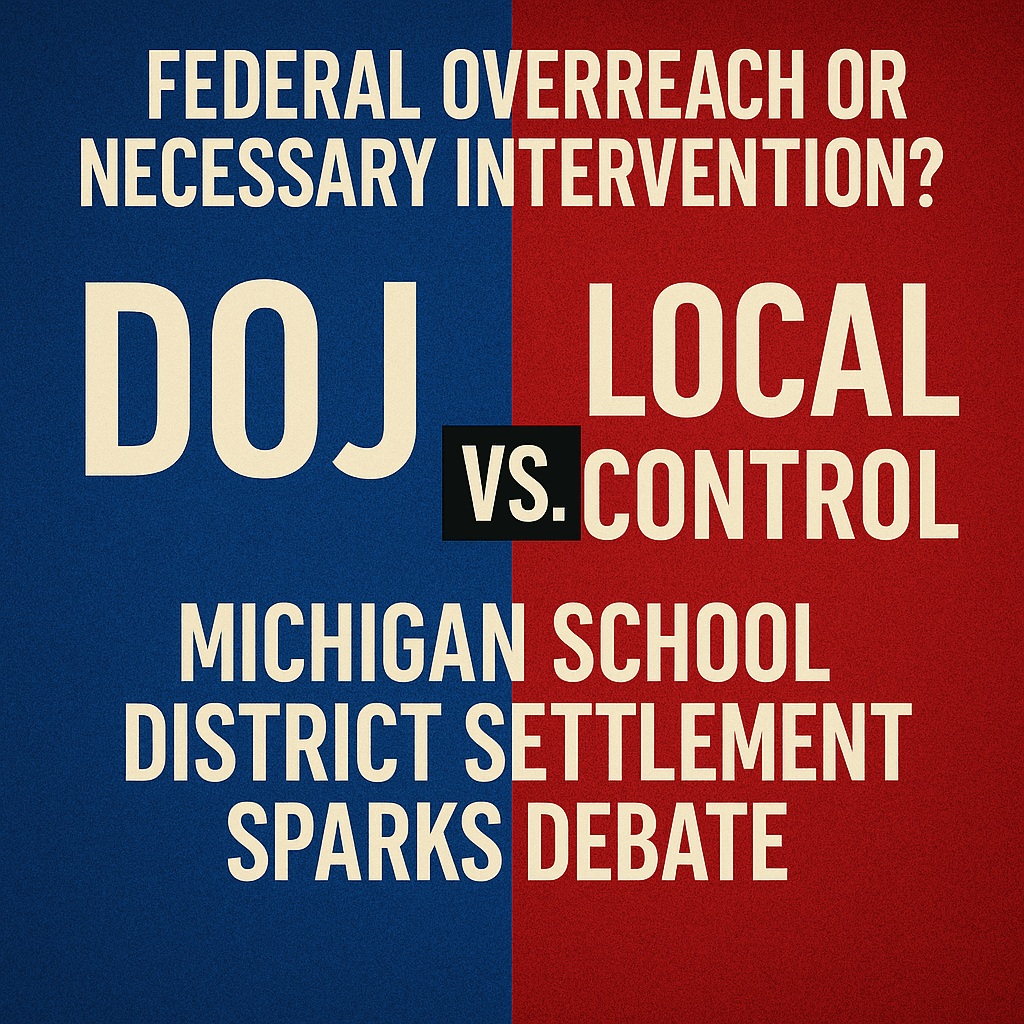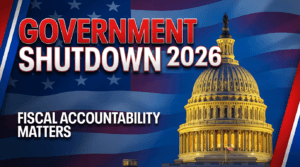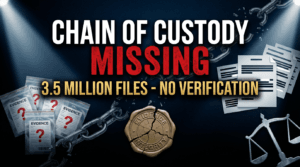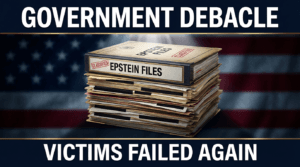DOJ vs. Local Control: Michigan School District Settlement Sparks Debate Over Federal Overreach in Education
Federal Overreach or Necessary Intervention? DOJ Settlement with Michigan School District Raises Questions About Local Control in Education
In an era of expanding federal influence over local education policies, the recent Department of Justice settlement with a Michigan school district highlights growing tensions between Washington bureaucrats and community educators.
In a move that has sparked debate among education policy experts and advocates for local control, the U.S. Department of Justice announced on July 3, 2025, that it has reached a settlement agreement with the Montcalm Area Intermediate School District in Michigan. The agreement fundamentally transforms how the district manages behavioral interventions for students with disabilities, eliminating seclusion practices entirely and significantly restricting the use of restraint techniques that many educators consider necessary tools for maintaining classroom safety.
The Settlement: What Michigan Educators Must Surrender
The DOJ investigation, conducted under the authority of the Americans with Disabilities Act (ADA), claimed that students with disabilities in the Montcalm district were subjected to seclusion and/or restraint more than 2,400 times during the period investigated. Federal officials alleged these practices constituted discrimination against students with disabilities.
Under pressure from federal authorities, Montcalm Area Intermediate School District has agreed to:
- Completely eliminate the use of seclusion rooms and practices
- Severely restrict when and how restraint can be implemented
- Overhaul special education services according to federal guidelines
- Submit to ongoing federal monitoring and compliance requirements
While Assistant Attorney General Harmeet K. Dhillon of the Justice Department’s Civil Rights Division praised the agreement as protecting vulnerable students, many local education advocates question whether this settlement represents appropriate federal involvement in matters traditionally left to state and local authorities.
Federal Expansion vs. Local Educational Authority
This settlement exemplifies a growing pattern of federal agencies dictating classroom management policies to local educators. Conservative education policy experts have long warned about the dangers of Washington bureaucrats making one-size-fits-all decisions that fail to account for the unique challenges faced by individual school districts.
“When federal agencies with limited classroom experience begin micromanaging how local educators handle complex behavioral situations, we risk undermining the authority of teachers and administrators who know their students best,” said Dr. James Richardson, education policy analyst at the Center for Educational Freedom. “While everyone agrees that students deserve protection, the question becomes whether distant federal regulators or community educators are better positioned to make these determinations.”
The Montcalm settlement raises important questions about the appropriate balance between federal oversight and local control in education—a cornerstone principle of conservative education policy. Critics argue that the DOJ’s approach represents yet another example of administrative overreach that threatens to erode local decision-making in America’s schools.
The Practical Reality: Classroom Safety Concerns
Educators on the front lines often face difficult decisions when managing classrooms that include students with significant behavioral challenges. Many special education teachers report that properly implemented seclusion and restraint techniques, when used as last resorts, can prevent dangerous situations that threaten both staff and student safety.
The settlement’s prohibition on seclusion and severe limitations on restraint may leave teachers with fewer options for addressing violent or dangerous behaviors. This raises legitimate concerns about whether the DOJ’s approach adequately considers the safety needs of all students and staff in educational environments.
“Teachers are increasingly caught between federal mandates and the practical realities of maintaining safe learning environments,” noted veteran special education teacher Martha Stevenson. “When federal authorities remove tools from our toolbox without providing adequate alternatives, they place both staff and students at increased risk.”
The Broader Context: A Pattern of Federal Education Overreach
The Montcalm settlement doesn’t exist in isolation but represents part of a broader trend of expanding federal influence over local education decisions. Under the Biden-Harris administration, the Department of Education and Department of Justice have pursued aggressive enforcement actions against local school districts across numerous policy areas.
This approach stands in stark contrast to the educational philosophy championed by the Trump administration, which emphasized returning decision-making authority to states, local communities, and parents. During his first term, President Trump worked to reduce federal micromanagement of education, recognizing that those closest to students—parents, teachers, and local administrators—are best positioned to make educational decisions.
With President Trump’s return to office in January 2025, many education policy experts anticipated a renewed focus on scaling back federal overreach in education. However, this recent DOJ settlement suggests that the federal bureaucracy continues to pursue an expansionist agenda in education policy, potentially at odds with the administration’s stated priorities.
The Financial Burden of Federal Compliance
Beyond philosophical questions about local control, settlements like the one imposed on Montcalm Area Intermediate School District create significant financial and administrative burdens for already-stretched educational budgets.
Implementing the mandated changes will require substantial resources for staff retraining, facility modifications, additional personnel, and ongoing compliance monitoring. These costs will ultimately be borne by local taxpayers and may divert resources from other educational priorities.
“When federal agencies impose costly mandates without providing corresponding funding, they effectively force local districts to cut other valuable programs and services,” explained education budget analyst Thomas Wilson. “This unfunded approach to federal intervention creates hidden costs that are rarely acknowledged in the celebratory press releases announcing these settlements.”
Balancing Student Protection with Educational Autonomy
While the protection of vulnerable students remains a universal priority, conservative education advocates argue that achieving this goal doesn’t require sacrificing local control or imposing one-size-fits-all federal solutions.
A more balanced approach would recognize the expertise of local educators while providing resources and guidance to help districts develop appropriate behavioral intervention strategies. This collaborative model would respect the principle of subsidiarity—the idea that matters should be handled by the smallest, lowest, or least centralized competent authority.
“We can protect vulnerable students without federalizing every aspect of classroom management,” said education policy researcher Dr. Elizabeth Harmon. “The most effective approaches typically involve empowering local communities with resources and information rather than imposing rigid federal mandates backed by the threat of legal action.”
The Path Forward: Restoring Balance in Educational Governance
As the Montcalm Area Intermediate School District begins implementing the changes required by the DOJ settlement, the broader debate about federal involvement in education continues. Conservative education reformers advocate for several principles to restore proper balance:
- Respect for local expertise: Recognizing that local educators and parents understand their students’ needs better than distant federal regulators
- Funded flexibility: Providing resources without rigid mandates, allowing districts to develop tailored solutions
- Evidence-based approaches: Focusing on proven interventions rather than ideologically-driven policies
- Parental empowerment: Ensuring parents have meaningful input in how schools address behavioral challenges
- Regulatory restraint: Limiting federal interventions to clear cases of constitutional violations rather than policy disagreements
Conclusion: Finding the Right Balance
The DOJ settlement with Montcalm Area Intermediate School District highlights the ongoing tension between federal oversight and local educational autonomy. While protecting vulnerable students remains an essential priority, conservative education advocates argue that this goal can be achieved without sacrificing the principle of local control.
As this settlement is implemented, education stakeholders across the political spectrum should closely monitor its effects on classroom safety, educational outcomes, and district resources. The results may provide valuable insights into whether federal intervention truly serves the best interests of students or simply expands bureaucratic authority at the expense of educational effectiveness.
In the meantime, the debate continues about who should make fundamental decisions about American education: federal regulators in Washington or the teachers, administrators, parents, and community members who interact with students every day. For conservatives committed to limited government and local control, the answer remains clear—those closest to students should have the greatest say in their education.












